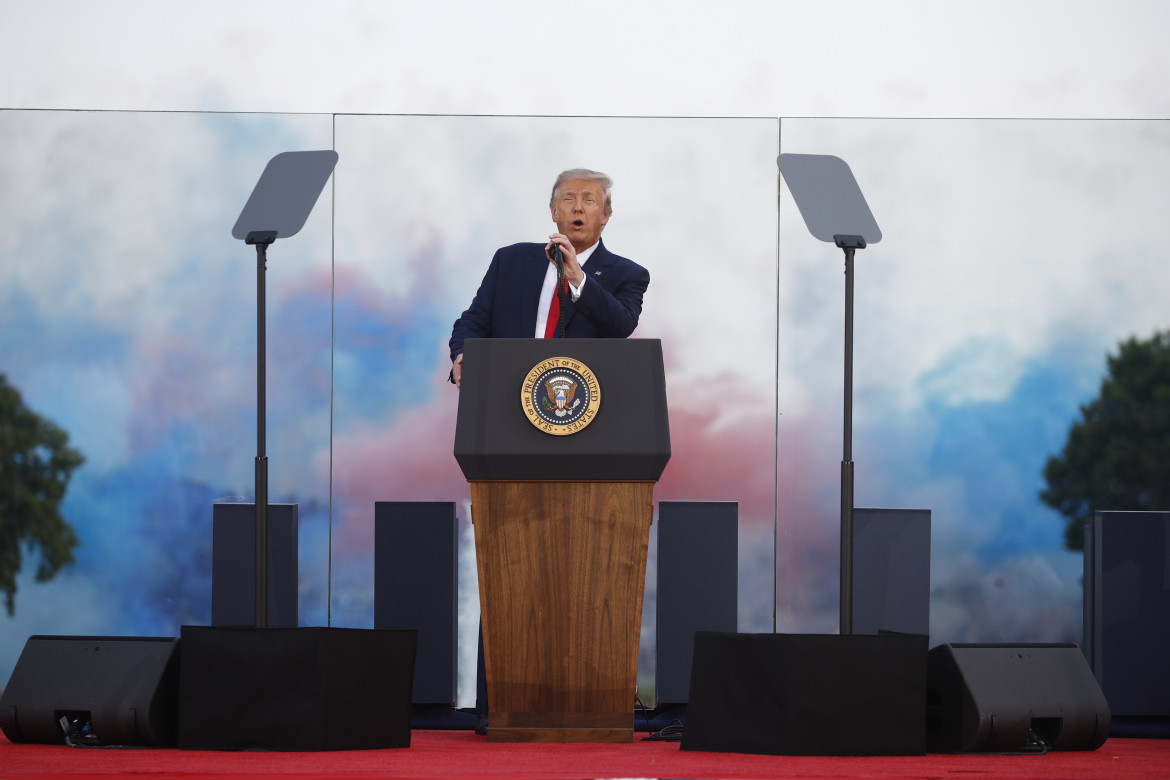Commentary
Trump is goading China, hoping to revive his troubled campaign
With the warships roaming in its waters and the crescendo of barbs towards China’s leadership, we will have to rely on the steely nerves of Xi and the Chinese leaders to ensure that no accident happens that would radically change the course of events.

A US fleet—two aircraft carriers, the Ronald Reagan and the Nimitz, the latter having played a sad role in the two Gulf Wars, together with four light vessels—is sailing to the waters of the Philippines Sea and the South China Sea, in the Paracelsus Islands area, where Chinese navy exercises have been underway since July 1. The islands have been disputed between China and Vietnam since 1974, in politically stormy waters, as this area, with a strategic position and rich in resources, is at the center of a web of territorial disputes involving the countries in the region: China, Japan, Vietnam, South Korea, Philippines, Malaysia, Taiwan and Brunei. China is visibly irked at the arrival of the US ships.
And Mike Pompeo is taunting the Chinese, deliberately fueling the tensions. According to the Secretary of State, the US is in agreement with its allies in Southeast Asia that “the PRC’s military exercise in disputed waters of the South China Sea is highly provocative. We oppose Beijing’s unlawful claims.”
China seems to be at the center of Donald Trump’s election campaign. Between his rallies and tweets that attempt to outline an inscrutable program for his re-election—if there is indeed anything more to it than just his person, his character, his repertoire of fears and hatreds—the Chinese question stands out the most, coming up in several different connections but with a clear guiding thread: China is the Enemy.
Trump has been calling the coronavirus “the virus that came from China,” “the Chinese virus,” “Kung Flu.” “I could give you 19 or 20 names for that,” he said at a rally in Phoenix—but they all revolve around China, his constant target, with the added notion that the Democrats, and particularly Joe Biden, are Beijing’s friends and lapdogs. Trump and his strategists have even begun to talk about a supposed plan from Beijing to alter the outcome of the November elections, falsifying votes by mail and involving other computer-related shenanigans, especially in the swing states.
In three or four of the decisive states, if Biden wins, Trump intends to fight the result, blaming supposed foreign interference, with the aim of excluding these states from the Electoral College count and thus stealing the victory away from Biden. Meanwhile, to make such accusations sound plausible, Trump’s side is accusing Biden of being weak on China. By contrast, the commander-in-chief is planning to flaunt the might of the US nuclear aircraft carriers in the face of the Chinese, just a few miles off their coast.
We are 118 days away from a presidential election. The action plan that will mark every day from now until the elections will revolve around the Enemy, China, because the type of narrative that Trump’s electorate likes is that of America against a great enemy that wants to subjugate it and that therefore must be brought to heel. Such an enemy is seen as plotting together with the internal enemies, those who are tearing down the “beautiful” statues commemorating the history of white supremacism and who are coming to paint the Black Lives Matter slogan—which Trump has called “a symbol of hate”—on the proverbial “luxury street,” New York’s Fifth Avenue, where Trump Tower is located, with a little help from Democratic mayor Bill de Blasio.
With the warships roaming in its waters and the crescendo of barbs towards China’s leadership, we will have to rely on the steely nerves of Xi and the Chinese leaders to ensure that no accident happens that would radically change the course of events. As things stand, according to the polls, Trump is in deep trouble, 11 points behind Biden nationally and down even in states that he would have taken for granted before the pandemic.
Trump’s intention is clear: to keep the pressure on Beijing so that something might happen to revive a campaign that is in a great crisis, while the coronavirus reaps its many victims and overwhelms the healthcare systems of states “friendly” to Trump, such as Texas and Florida, and unemployment remains terribly high, despite the president’s ridiculous boasting after some of the many lost jobs returned.
However, it has to be pointed out that Biden is conducting an election campaign mirroring Trump’s own, focusing his attacks on Trump’s relations with China. He is basically accusing the president of talking tough, but actually being himself Xi Jinping’s lapdog, to the point of being humiliated by the Chinese leader.
Of course, relations with Beijing are objectively important in an electoral contest. However, the fact remains that neither Biden nor the Democrats seem to be able to put any issues of international politics on the agenda beyond a revival of the Cold War-style bipolar scheme, with Beijing instead of Moscow. Meanwhile, there is no lack of even more urgent issues to discuss, such as the Iranian question, on which we don’t even know the position of the Democratic candidate, and more generally the Middle East, with the annexationist policy of Israel and the continuing Syrian conflict at its center.
Nor is there any mention of transatlantic relations, NATO or Latin America. The subtext of this avoidance should be noted: in any case—regardless of who the new president will be—the axis of strategic US interests has been permanently moved to Asia and the Pacific.
Originally published at https://ilmanifesto.it/trump-e-le-presidenziali-usa-linfluenza-della-questione-cinese/ on 2020-07-07
